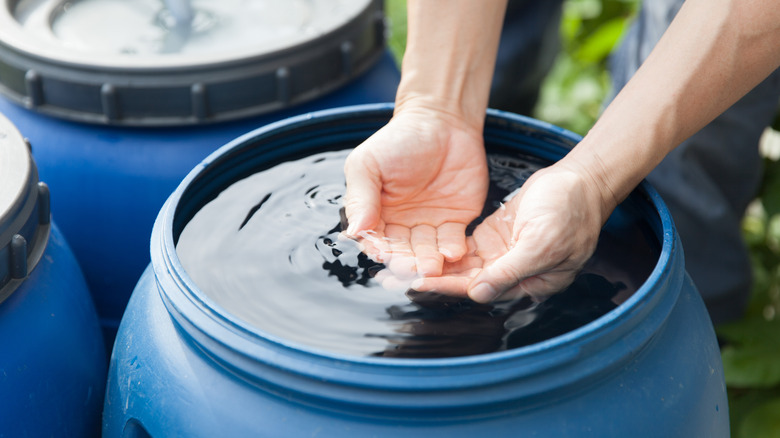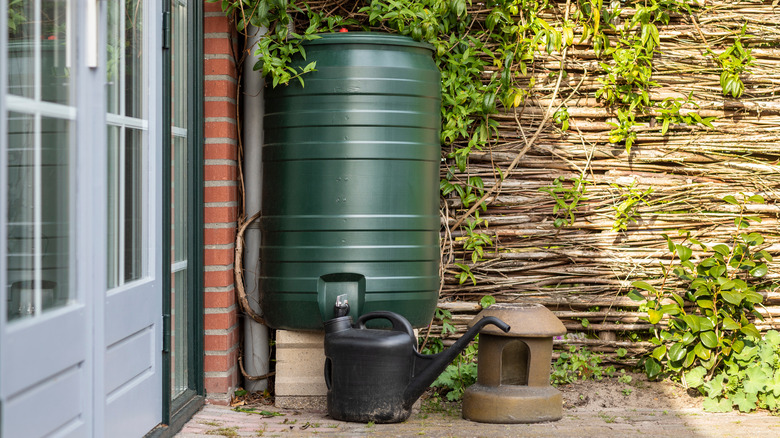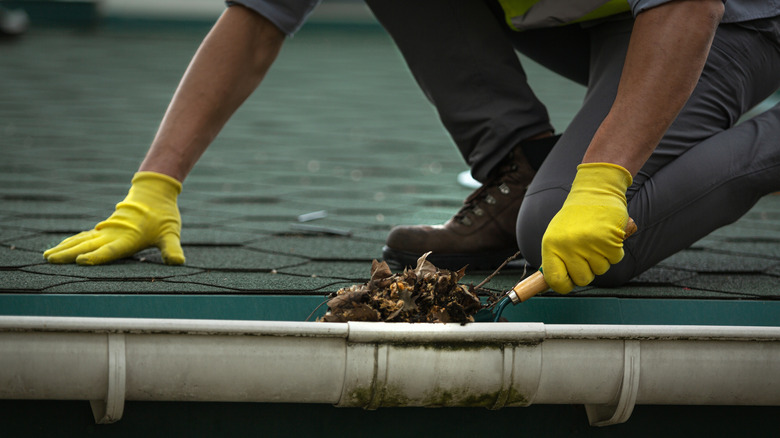Why Rainwater Isn't Safe To Drink On Earth Anymore, According To Scientists
The water cycle is one of the most important processes on the planet. It is largely responsible for rivers, lakes, drinking water, irrigation and agriculture, and more. With no rain, many areas of the planet would dry up, and many plants would cease to exist, meaning less food and oxygen for people (via Atonibai). The cycle goes as follows: evaporation, condensation, and precipitation. As outlined by SciJinks, water on the planet's surface first evaporates from heat, turning into vapor, and then condenses into clouds, which then precipitate water back to the earth via rainfall.
While it might seem like a good idea to drink some of this rainwater, it can actually present a host of health problems. According to Euronews, scientists have revealed that rainwater in any location on the planet is now entirely unsafe to drink. Pollution is largely to blame for this rise in toxicity, bringing what scientists call forever chemicals to the forefront.
Rainwater is often contaminated and needs special equipment
Many people might be attracted to the idea of collecting rainwater for various reasons. For one, it can help conserve water and even be useful for things like cleaning and gardening. However, one should know the associated risks with using rainwater, and they should use the proper equipment for it as well. As the Centers for Disease Control and Prevention (CDC) says, rainwater is often contaminated with a lot of bacteria, dirt, parasites, chemicals, and other dangerous material. Of course, the level of danger is very dependent on the location, but it is present in most areas on the planet.
If one is going to collect rainwater, they need to be aware of both the proper harvest equipment along with state laws in relation to rainwater collection. According to Rain Water Equipment, some states have special requirements when collecting rainwater. For example, Colorado lets residents keep up to 150 gallons of rainwater as long as guidelines are followed. Elsewhere, Washington allows rooftop rainwater collecting, even without a permit to do so.
Forever chemicals have basically ruined rainwater for everyone
Even with all of the precautions heeded and the right equipment procured, rainwater just isn't safe for anyone anymore. And if one thought they could get away with going to less polluted areas in the world, turns out that won't work either. As Euronews says, rainwater is now unsafe for everyone, regardless of where they are on the planet. The problem is that forever chemicals have basically polluted all precipitation, making rain unsafe for consumption.
As NPR explains, forever chemicals come from pollutants in landfills, which end up, well, going everywhere. They will get absorbed into the soil, water, air, everything. These chemicals are called "per-and polyfluoroalkyl substances" (PFAS), which are often called forever chemicals. They are called that because they tend to stick around for basically forever, or close to it, and can't break down. Much of these pollutants have entered every body of water on the planet, meaning that no one is safe. It isn't entirely clear how this problem will be solved, but for now, people should lay off the rainwater.


